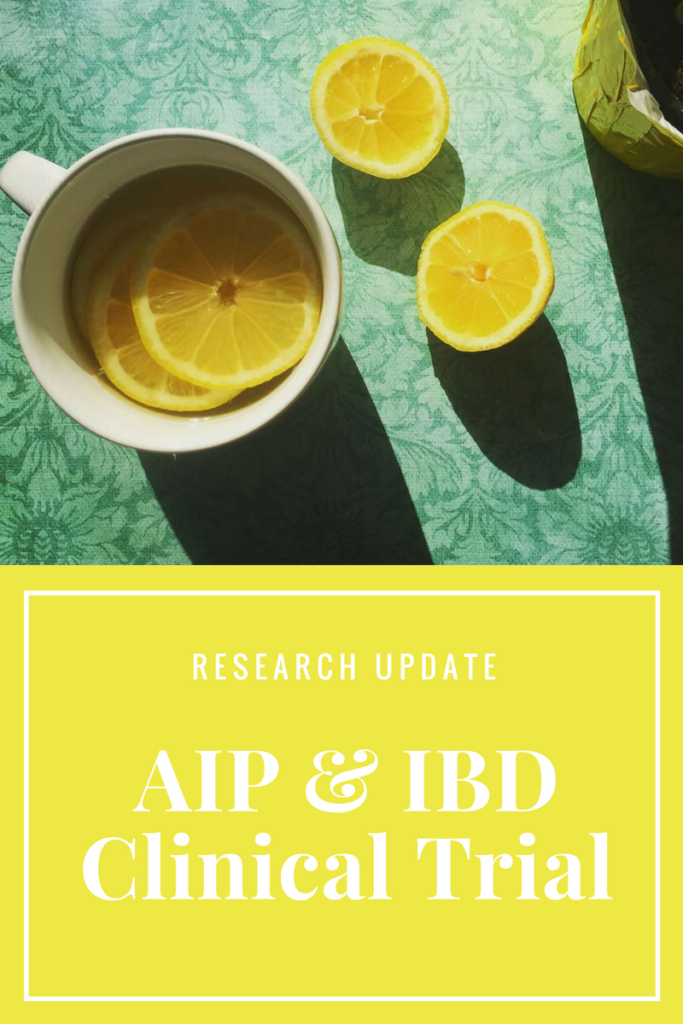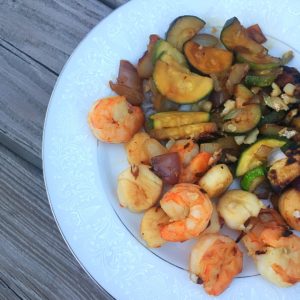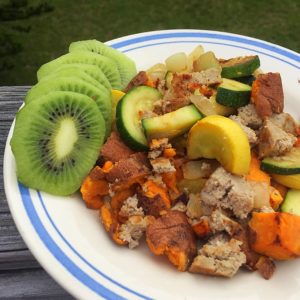Twitter Version: Researchers placed 15 IBD patients on the AIP (Autoimmune Protocol) diet, and by week 6, 73% of the patients (11/15) achieved clinical remission.
Researchers at Scripps University in San Diego studied the impact of the Autoimmune Protocol Diet (AIP) on Inflammatory Bowel Disease patients during the fall of 2016. The researchers published two articles in the journal Gastroenterology called “Efficacy and Tolerability of the Autoimmune Protocol Diet for Inflammatory Bowel Disease” and “Rapid Improvements in Symptoms and Quality of Life Among Patients with Inflammatory Bowel Disease following an Autoimmune Protocol Diet.”
Goals of the Study
- To determine the efficacy and tolerability of the Autoimmune Protocol Diet on Inflammatory Bowel Disease patients
- To investigate the impact of the AIP diet on symptoms and quality of life
- To compare the efficacy of the AIP diet between Crohn’s disease (CD) and ulcerative colitis (UC) patients
The Participants
Eighteen adult patients with Crohn’s disease or ulcerative colitis with mild to moderate disease activity were enrolled in the study. Eligible candidates were required to have a Harvey Bradshaw Index ≥ 5 or a partial Mayo score ≥ 3, which are measures of disease activity for Crohn’s disease and ulcerative colitis patients, respectively. The candidates also needed to provide evidence of active disease either from an endoscopy within 7 months and/or elevated fecal calprotectin (inflammatory marker in stool) within 1 month before the study started.
Three patients could not commit to the diet and withdrew before the study started. Over 6 weeks, the patients transitioned to the full Autoimmune Protocol diet, which is free of grains, dairy, eggs, legumes, nightshades, nuts, seeds, refined/processed sugars and oils, food additives, coffee, and alcohol. The participants then continued the diet for an additional 5 weeks. Laboratory analyses were performed at weeks 0 and 6, and 7 participants underwent endoscopy at week 11.
Results:
A total of 9 patients with Crohn’s disease and 6 patients with ulcerative colitis completed the study. Seven patients were actively using a biologic (Humira, Remicade, Cimzia, Stelara, Tysabri, ect.), and mean IBD duration was 19 years.
*Note: I list p-values below. A p-value ≤ 0.05 indicates strong evidence that we can reject the null hypothesis, which would be that the AIP diet has no impact on the inflammation levels, symptoms, and quality of life of IBD patients. In this way, “significant” data means that the p value was ≤ 0.05, suggesting the dietary intervention did have an impact on the parameters studied. The letter “n” refers to the number of participants.
By week 3, participants had excluded grains, legumes, nightshades, and alcohol from their diets. The following improvements were noted:
- Significant improvements in bowel movement frequency (p=0.04)
- Significant improvements in state of relaxation/free of tension (p=0.01)
- Significant improvements in performance of leisure/sport activities (p=0.02)
- Nonsignificant improvements in fatigue, energy
- Nonsignificant decreases in frequency of abdominal cramps, worry of surgery, fear of not finding a toilet, and irritable mood
- No significant differences of the effects of the AIP diet on Crohn’s disease versus ulcerative colitis patients –> indicating the diet worked equally well for CD & UC patients
At week 6, patients underwent repeat laboratory analysis for CRP, fecal calprotectin, and lipid profile. Disease activity was also analyzed using the partial Mayo score and Harvey Bradshaw Index.
- Mean partial Mayo score improved from 5.8 to 1.2 for UC patients from weeks 0 to 6 (p<0.01)
- A Partial Mayo score < 2 correlates with clinical remission
- Mean Harvey Bradshaw Index score improved from 7 to 3.6 for CD patients from weeks 0 to 6 (p<0.01)
- A Harvey-Bradshaw Index <5 correlates with clinical remission
- Baseline CRP (inflammatory marker in blood) was normal (<10) in 10/15 patients. 11 patients completed follow up labs at week 6, and mean CRP improved from 8.3 to 7.0 (p=0.46)
- Mean fecal calprotectin (inflammatory marker in stool) improved from 412 (range 80-1078) to 196 (range 0-758) from weeks 0 to 6 (p=0.36)
- No significant changes lipid profiles at week 6 (LDL, HDL, cholesterol, triglycerides)
- One patient with ileal Crohn’s disease with stricture withdrew from the study due to worsening symptoms
- In the 7 patients who underwent follow up endoscopy at week 11, there were improvements in endoscopic activity scores: SES-CD (n=1), Rutgeerts score (n=1), and Mayo endoscopy subscore (n=4)


Conclusions
The preliminary findings are very promising. Patients report improved symptoms and quality of life within the first 3 weeks on the AIP diet. By week 6, disease activity markers improved significantly (73% of patients were in clinical remission), and by week 11, improvements were seen on endoscopy. Dietary intervention has potential to improve symptoms, quality of life, and endoscopic inflammation in IBD patients. In the future, larger, randomized trials are necessary to validate the above findings.
Who else has tried the Autoimmune Protocol (AIP), and what are your thoughts?
Citations:
Groven, Shauna, et al. “Rapid Improvement in Symptoms and Quality of Life among Patients with Inflammatory Bowel Disease following an Autoimmune Protocol Diet.” Gastroenterology 152.5 (2017): S410.
Konijeti, Gauree G., et al. “Efficacy and Tolerability of the Autoimmune Protocol Diet for Inflammatory Bowel Disease.” Gastroenterology 152.5 (2017): S401-S402.









Leave a Reply